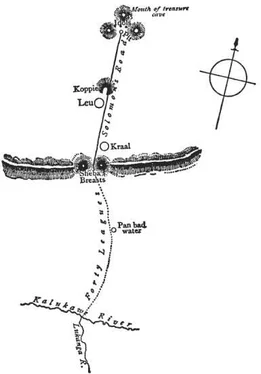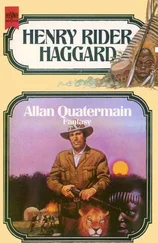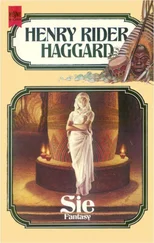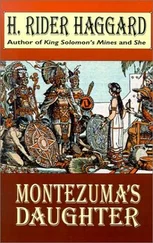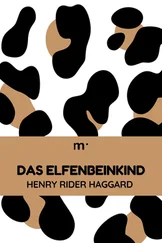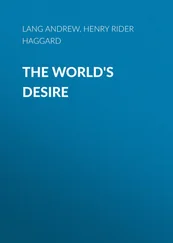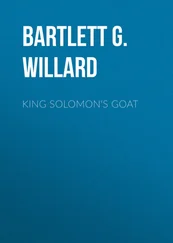Henry Haggard - King Solomon's Mines
Здесь есть возможность читать онлайн «Henry Haggard - King Solomon's Mines» — ознакомительный отрывок электронной книги совершенно бесплатно, а после прочтения отрывка купить полную версию. В некоторых случаях можно слушать аудио, скачать через торрент в формате fb2 и присутствует краткое содержание. Год выпуска: 1907, Издательство: Cassell and Company, Limited., Жанр: Путешествия и география, Природа и животные, на английском языке. Описание произведения, (предисловие) а так же отзывы посетителей доступны на портале библиотеки ЛибКат.
- Название:King Solomon's Mines
- Автор:
- Издательство:Cassell and Company, Limited.
- Жанр:
- Год:1907
- ISBN:нет данных
- Рейтинг книги:3 / 5. Голосов: 1
-
Избранное:Добавить в избранное
- Отзывы:
-
Ваша оценка:
- 60
- 1
- 2
- 3
- 4
- 5
King Solomon's Mines: краткое содержание, описание и аннотация
Предлагаем к чтению аннотацию, описание, краткое содержание или предисловие (зависит от того, что написал сам автор книги «King Solomon's Mines»). Если вы не нашли необходимую информацию о книге — напишите в комментариях, мы постараемся отыскать её.
King Solomon's Mines — читать онлайн ознакомительный отрывок
Ниже представлен текст книги, разбитый по страницам. Система сохранения места последней прочитанной страницы, позволяет с удобством читать онлайн бесплатно книгу «King Solomon's Mines», без необходимости каждый раз заново искать на чём Вы остановились. Поставьте закладку, и сможете в любой момент перейти на страницу, на которой закончили чтение.
Интервал:
Закладка:
KING SOLOMON'S MINES
DEDICATION
This faithful but unpretending record
of a remarkable adventure
is hereby respectfully dedicated
by the narrator,
ALLAN QUATERMAIN,
to all the big and little boys
who read it.
AUTHOR'S NOTE
The author ventures to take this opportunity to thank his readers for the kind reception they have accorded to the successive editions of this tale during the last twelve years. He hopes that in its present form it will fall into the hands of an even wider public, and that in years to come it may continue to afford amusement to those who are still young enough at heart to love a story of treasure, war, and wild adventure.
Ditchingham,
11 March, 1898.
POST SCRIPTUM
Now, in 1907, on the occasion of the issue of this edition, I can only add how glad I am that my romance should continue to please so many readers. Imagination has been verified by fact; the King Solomon's Mines I dreamed of have been discovered, and are putting out their gold once more, and, according to the latest reports, their diamonds also; the Kukuanas or, rather, the Matabele, have been tamed by the white man's bullets, but still there seem to be many who find pleasure in these simple pages. That they may continue so to do, even to the third and fourth generation, or perhaps longer still, would, I am sure, be the hope of our old and departed friend, Allan Quatermain.
H. Rider Haggard.
Ditchingham, 1907.
INTRODUCTION
Now that this book is printed, and about to be given to the world, a sense of its shortcomings both in style and contents, weighs very heavily upon me. As regards the latter, I can only say that it does not pretend to be a full account of everything we did and saw. There are many things connected with our journey into Kukuanaland that I should have liked to dwell upon at length, which, as it is, have been scarcely alluded to. Amongst these are the curious legends which I collected about the chain armour that saved us from destruction in the great battle of Loo, and also about the "Silent Ones" or Colossi at the mouth of the stalactite cave. Again, if I had given way to my own impulses, I should have wished to go into the differences, some of which are to my mind very suggestive, between the Zulu and Kukuana dialects. Also a few pages might have been given up profitably to the consideration of the indigenous flora and fauna of Kukuanaland. [1] I discovered eight varieties of antelope, with which I was previously totally unacquainted, and many new species of plants, for the most part of the bulbous tribe.—A.Q.
Then there remains the most interesting subject—that, as it is, has only been touched on incidentally—of the magnificent system of military organisation in force in that country, which, in my opinion, is much superior to that inaugurated by Chaka in Zululand, inasmuch as it permits of even more rapid mobilisation, and does not necessitate the employment of the pernicious system of enforced celibacy. Lastly, I have scarcely spoken of the domestic and family customs of the Kukuanas, many of which are exceedingly quaint, or of their proficiency in the art of smelting and welding metals. This science they carry to considerable perfection, of which a good example is to be seen in their "tollas," or heavy throwing knives, the backs of these weapons being made of hammered iron, and the edges of beautiful steel welded with great skill on to the iron frames. The fact of the matter is, I thought, with Sir Henry Curtis and Captain Good, that the best plan would be to tell my story in a plain, straightforward manner, and to leave these matters to be dealt with subsequently in whatever way ultimately may appear to be desirable. In the meanwhile I shall, of course, be delighted to give all information in my power to anybody interested in such things.
And now it only remains for me to offer apologies for my blunt way of writing. I can but say in excuse of it that I am more accustomed to handle a rifle than a pen, and cannot make any pretence to the grand literary flights and flourishes which I see in novels—for sometimes I like to read a novel. I suppose they—the flights and flourishes—are desirable, and I regret not being able to supply them; but at the same time I cannot help thinking that simple things are always the most impressive, and that books are easier to understand when they are written in plain language, though perhaps I have no right to set up an opinion on such a matter. "A sharp spear," runs the Kukuana saying, "needs no polish"; and on the same principle I venture to hope that a true story, however strange it may be, does not require to be decked out in fine words.
Allan Quatermain.
CHAPTER I
I MEET SIR HENRY CURTIS
It is a curious thing that at my age—fifty-five last birthday—I should find myself taking up a pen to try to write a history. I wonder what sort of a history it will be when I have finished it, if ever I come to the end of the trip! I have done a good many things in my life, which seems a long one to me, owing to my having begun work so young, perhaps. At an age when other boys are at school I was earning my living as a trader in the old Colony. I have been trading, hunting, fighting, or mining ever since. And yet it is only eight months ago that I made my pile. It is a big pile now that I have got it—I don't yet know how big—but I do not think I would go through the last fifteen or sixteen months again for it; no, not if I knew that I should come out safe at the end, pile and all. But then I am a timid man, and dislike violence; moreover, I am almost sick of adventure. I wonder why I am going to write this book: it is not in my line. I am not a literary man, though very devoted to the Old Testament and also to the "Ingoldsby Legends." Let me try to set down my reasons, just to see if I have any.
First reason: Because Sir Henry Curtis and Captain John Good asked me.
Second reason: Because I am laid up here at Durban with the pain in my left leg. Ever since that confounded lion got hold of me I have been liable to this trouble, and being rather bad just now, it makes me limp more than ever. There must be some poison in a lion's teeth, otherwise how is it that when your wounds are healed they break out again, generally, mark you, at the same time of year that you got your mauling? It is a hard thing when one has shot sixty-five lions or more, as I have in the course of my life, that the sixty-sixth should chew your leg like a quid of tobacco. It breaks the routine of the thing, and putting other considerations aside, I am an orderly man and don't like that. This is by the way.
Third reason: Because I want my boy Harry, who is over there at the hospital in London studying to become a doctor, to have something to amuse him and keep him out of mischief for a week or so. Hospital work must sometimes pall and grow rather dull, for even of cutting up dead bodies there may come satiety, and as this history will not be dull, whatever else it may be, it will put a little life into things for a day or two while Harry is reading of our adventures.
Fourth reason and last: Because I am going to tell the strangest story that I remember. It may seem a queer thing to say, especially considering that there is no woman in it—except Foulata. Stop, though! there is Gagaoola, if she was a woman, and not a fiend. But she was a hundred at least, and therefore not marriageable, so I don't count her. At any rate, I can safely say that there is not a petticoat in the whole history.
Читать дальшеИнтервал:
Закладка:
Похожие книги на «King Solomon's Mines»
Представляем Вашему вниманию похожие книги на «King Solomon's Mines» списком для выбора. Мы отобрали схожую по названию и смыслу литературу в надежде предоставить читателям больше вариантов отыскать новые, интересные, ещё непрочитанные произведения.
Обсуждение, отзывы о книге «King Solomon's Mines» и просто собственные мнения читателей. Оставьте ваши комментарии, напишите, что Вы думаете о произведении, его смысле или главных героях. Укажите что конкретно понравилось, а что нет, и почему Вы так считаете.
